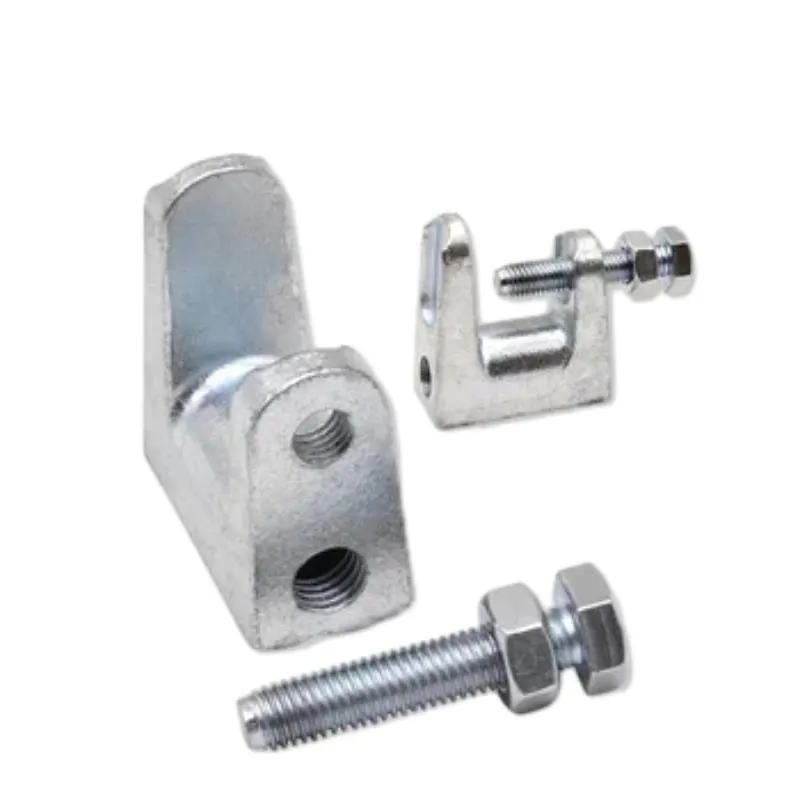nov . 21, 2024 01:04 Back to list
flat washer sizes
Understanding Flat Washer Sizes A Comprehensive Guide
Flat washers are integral components in construction, manufacturing, and maintenance operations, serving to distribute loads and reduce the stress on fasteners. Despite their simplicity, understanding the various sizes and specifications of flat washers is essential for ensuring effective assembly and structural integrity. In this article, we will explore the various aspects of flat washer sizes, including their dimensions, materials, and applications.
What Are Flat Washers?
Flat washers are disc-shaped pieces of material, typically made from metal, plastic, or rubber, with a hole in the center to accommodate a fastener such as a bolt or screw. They are designed to be placed between the fastener and the surface of what is being fastened to help distribute the load and prevent damage to the material being fastened.
Standard Flat Washer Sizes
Flat washers come in a variety of sizes, which are standardized by organizations such as ASTM (American Society for Testing and Materials) and SAE (Society of Automotive Engineers). The most common sizes are defined by the inner diameter (ID), outer diameter (OD), and thickness (T).
1. Inner Diameter (ID) This is the hole size of the washer, which must match the diameter of the bolt or screw it will be used with. Common IDs range from 1/16 inch to several inches, depending on the application.
2. Outer Diameter (OD) This dimension contributes to the load distribution capabilities of the washer. A larger OD means that the washer can disperse the load over a broader surface area, which is particularly useful in softer materials that are prone to deformation.
3. Thickness (T) The thickness of a washer affects its strength and the amount of load it can withstand. Thicker washers can better handle higher loads but may also mean increased weight and cost.
Common Material Types
Flat washers can be made from a variety of materials, each suited for different applications
- Steel Washers Often zinc-plated to protect against corrosion, steel washers are the most common due to their strength and durability.
- Stainless Steel Washers These are resistant to rust and corrosion, making them ideal for applications exposed to moisture or harsh environments.
- Plastic Washers Lightweight and corrosion-resistant, plastic washers are used in applications where metal might cause damage or where electrical insulation is required.
- Rubber Washers Often used in plumbing, rubber washers provide a tight seal, preventing leaks in fittings.
flat washer sizes

Applications of Flat Washers
Flat washers are utilized in a wide range of industries, including
- Construction Used extensively in building projects to ensure bolts and screws do not damage the materials they penetrate.
- Automotive Essential in various automotive applications to reduce friction and prevent damage to fastened components.
- Electronics Used to stabilize components and provide electrical insulation in electronic devices.
- HVAC Systems Commonly employed in heating, ventilation, and air conditioning systems for efficient assembly and maintenance.
Selecting the Right Washer Size
Choosing the correct size flat washer is critical for achieving a secure and reliable connection. When selecting a washer, consider the following
1. Compatibility with Fasteners Ensure the inner diameter matches the bolt or screw diameter.
2. Load Requirements Assess the load that will be applied to determine the necessary outer diameter and thickness.
3. Material Suitability Choose a material that can withstand the environmental conditions it will be exposed to.
4. Standards Compliance Refer to industry standards to ensure the washer meets necessary regulations and specifications.
Conclusion
Understanding flat washer sizes and their specifications is essential for anyone involved in construction, manufacturing, or repair work. By carefully selecting the right washers based on their dimensions, materials, and intended applications, you can ensure the integrity and durability of your assemblies. Remember, while flat washers may seem simple, their correct application is crucial for successful mechanical and structural performance.


